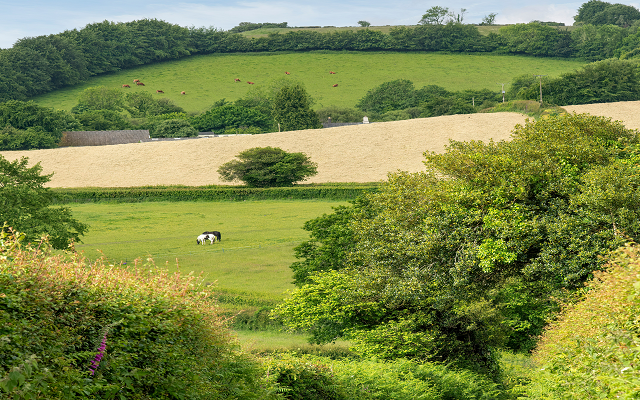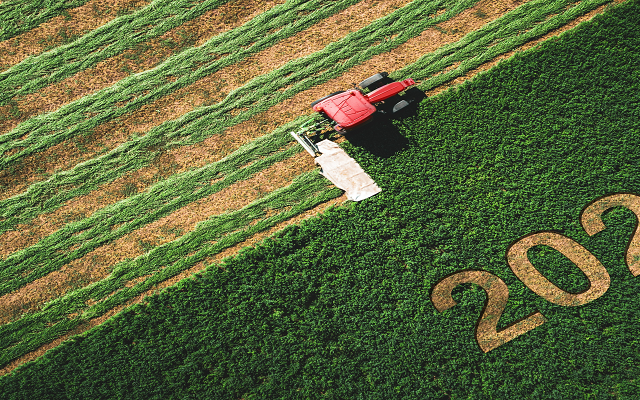Defra and the climb towards Net Zero
What is the problem?
The UK Government is falling behind on its net zero emissions reductions targets, most strikingly so in the UK agriculture and land use sector.
The Word Wide Fund for Nature (WWF) has analysed the figures from the Government’s Carbon Budget Delivery Strategy, published alongside a swathe of documents on the re-branded ‘Powering Up Britain Day’ at the end of March.
WWF analysts found that the projected emissions reductions in the strategy fall short of those made when the original net zero strategy was published.
It follows mounting evidence that the Government’s implementation of its net zero strategy is not going to plan.
Over nine months ago, the High Court ruled that the Government had failed to meet its obligations under the 2008 Climate Change Act and that the net zero strategy was unlawful, as it lacked any quantification of how it would achieve targets.
Following this, leaked documents from Defra dated 20th February 2023, showed that 85% of the department’s proposed green policies have been internally assessed and were ‘amber’ or ‘red’ with regard to delivery confidence or risk.
Most recently, Defra has also pushed back on its pledge to release a horticulture strategy, a somewhat short-sighted move in the current climate with regard to food security and the economy.
As part of ‘Powering Up Britain Day’ the government released over 2,500 pages of documentation, to revamp to its net zero strategy. This revamp, however, ignored the vast majority of the recommendations made in the independent review, commissioned by the Government, from MP Chris Skidmore with the aim of highlighting the best pathway towards the UK achieving net zero.
Furthermore, the Government admitted that the new policies in this revamped strategy would only achieve 92% of the emissions reductions that are required to meet its 2030 target. Even this figure is set based on the assumption that the Government will achieve all the emissions reductions set out in the plan, which is highly optimistic, and that investment in carbon capture technology will be effective and work as a solution, which is again highly optimistic.
How far off target is the agriculture and land use?
WWF analysis found that the total projected emissions reductions from now until 2037 for agriculture and land use were 58% less than the figures which underpinned the original net zero strategy. To put this change into context – it is equivalent to the emissions of the entire UK building sector.
In addition to this, WWF found that the total projected benefit of tree planting to emissions reductions up until 2037 was 85% lower than pledged in the original net zero strategy. This is due to tree planting rates being 50% slower than expected. Peatland, is a similar story with restoration rates 80% behind net zero targets as uptake in peatland restoration schemes is lower than expected.
What does this mean?
Defra is already buckling under the pressure of the Government’s net zero commitments and its current pledges are not sufficient to deliver the required emissions reductions. These recent findings show Defra in a shockingly inadequate light, with a lot of catching up to do before the end of the decade. It is likely that these reports will only increase the emphasis on the need for better environmental outcomes and there may be an increase in policies promoting nature-based solutions, such as, Biodiversity Net Gain, peatland restoration and tree planting.
Agriculture and land use opportunity
The agriculture sector has great potential to be a key player in the UK’s transition to a green economy and to reach net zero targets. Skidmore’s Mission Zero (net zero review) highlights this, arguing that the majority of land use decarbonisation methods for agriculture are productivity enhancing. These methods have the potential to save farm businesses £179 million per annum by 2034, escalating to £1.5 billion per annum by 2050. In addition to this, the Government’s £270 million Farming Innovation Fund is a clear opportunity within the sector for innovation to strive towards reducing emissions. The rural sector is in a unique position where despite having a widely publicised negative impact on emissions, it is the sector with the most potential to mitigate the impacts of climate change and help the UK reach its net zero targets. Defra must harness this potential and ensure that farmers and landowners are able to reap the benefits of a green economy.
For more information please contact Donna Rourke, Head of ESG and Sustainability.






